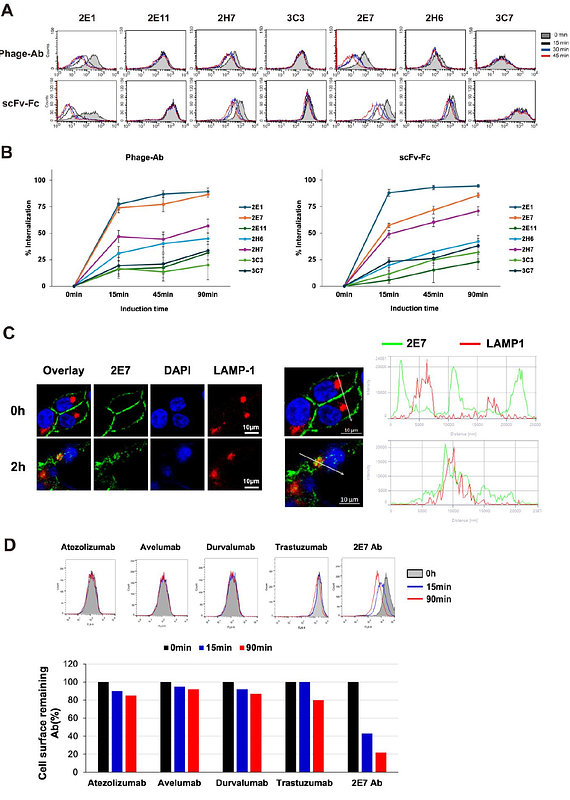Targeting the ITGA3B1 Complex with A Novel Antibody-Drug Conjugate for Metastatic Bladder Cancer

Targeting the ITGA3B1 Complex with A Novel Antibody-Drug Conjugate for Metastatic Bladder Cancer
Jung, H.; Lee, J.; Kim, E. G.; Ahn, J.; Haffner, M.; Nelson, P. S.; Kim, K.; Lee, J. K.; Yi, E. C.; Kim, K. M.
AbstractAdvances in antibody (Ab) phage display technologies have enabled the development of targeted therapies with enhanced precision and clinical efficacy. Here, we report a phenotypic screening strategy combining target-unbiased live-cell biopanning with in situ chemical crosslinking and mass spectrometry to identify internalizing antibodies and their cognate antigens--key features for effective antibody-drug conjugate (ADC) development. Using this approach, we identified the 2E7 antibody, which exhibits rapid internalization and high specificity for the integrin 3{beta}1 (ITGA3B1) heterodimer, a complex overexpressed in multiple solid tumors, including bladder cancer. We generated an ITGA3B1-targeted ADC by conjugating monomethyl auristatin E (MMAE) to the 2E7 antibody, enabling selective delivery of cytotoxic payloads to ITGA3B1-positive cells. In preclinical bladder cancer models, this ADC demonstrated potent and dose-dependent antitumor efficacy, with significant tumor regression and improved survival. Our findings establish a framework for target discovery using live-cell phenotypic screening and position ITGA3B1 as a promising therapeutic target for ADC-based treatment of advanced bladder cancer.